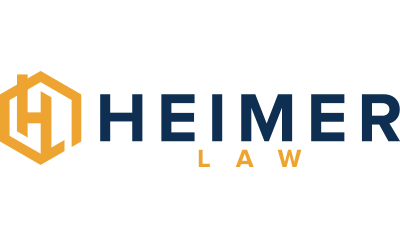One of the unfortunate truths about adoption is that, while it is a clear and clearly regulated legal process, there are still a lot of shadowy players on the outskirts. Unlicensed “adoption facilitators” operate without oversight. Some may help people, but they pose a real risk, and some are actively harmful to the people they work with. This is why it is so important to choose licensed adoption professionals to help you through the adoption process. But who is a licensed adoption professional and how can you tell?
The primary regulatory body overseeing adoption practices and professionals in Arkansas is the Arkansas Department of Human Services (DHS), specifically its Division of Children and Family Services (DCFS). While DHS handles adoptions of children in foster care, private adoption agencies, adoption lawyers, and independent social workers must also adhere to state licensing requirements and policies to operate legally.
Types of licensed adoption professionals
In Arkansas, you will generally find three main types of licensed adoption professionals:
- Licensed adoption agencies: These are organizations that are fully licensed by the state to provide a comprehensive range of adoption services. They can be non-profit or for-profit entities. Agencies often facilitate both private domestic infant adoptions and may also work with foster care adoptions. Many offer services to both birth parents (counseling, financial assistance, creation of adoption plans) and prospective adoptive families (home studies, matching services, post-placement support). National agencies often have state-specific licensing to operate in Arkansas.
- Licensed social workers: While adoption agencies employ social workers, independent licensed social workers can also play a crucial role, particularly in completing home studies. In Arkansas, a home study—a mandatory evaluation of a prospective adoptive family’s readiness to parent—must be completed by a state-licensed social worker or a licensed adoption agency. These social workers are licensed by the Arkansas Social Work Licensing Board, ensuring they meet specific educational, experience, and ethical standards.
- Adoption lawyers: To practice law in Arkansas, an attorney must have a Juris Doctor (JD) degree from a law school approved by the American Bar Association (ABA). They must pass the Arkansas Bar Exam, which typically includes the Uniform Bar Exam (UBE), Multi-State Performance Test (MPT), and Multi-State Essay Examination (MEE). They must also pass the Multistate Professional Responsibility Examination (MPRE) with a scaled score of 85 or more. In addition to this alphabet soup of legal requirements, they also must “be a person of good moral character and mentally and emotionally stable,” as it says on the Bar Exam application.
It is important to note that “adoption facilitators” are generally unregulated and often illegal in many states due to the risks they pose by not being licensed or overseen by state authorities. While Arkansas does not explicitly ban them, licensed professionals strongly advise against using them due to the lack of oversight and comprehensive services.
What do licensed professionals do?
Licensed adoption professionals in Arkansas undertake several vital responsibilities throughout the adoption process:
- Home Study Completion: This is a comprehensive assessment required for all prospective adoptive parents in Arkansas, regardless of the type of adoption. A licensed social worker or agency will evaluate the family’s physical and mental health, financial stability, emotional preparedness, living environment, discipline practices, and more. This typically involves interviews, home visits, and extensive background checks (including child maltreatment and criminal checks for all household members over a certain age). The home study must be updated if more than one year passes before a child is placed.
- Counseling and Support: For birth parents considering adoption, licensed agencies provide crucial, no-cost counseling services. This support helps them understand their options, make informed decisions, create an adoption plan (including choosing an adoptive family and deciding on the level of openness), and receive ongoing emotional support before and after placement.
- Matching Services: Adoption professionals facilitate the matching process between birth parents and adoptive families. They present profiles of approved families to birth parents, helping them find a family that aligns with their wishes for their child’s future.
- Legal Guidance and Compliance: Adoption involves complex legal procedures. Attorneys ensure all state and federal adoption laws are followed, including obtaining legal consent from birth parents (which must be given after the child’s birth and witnessed by a licensed professional, notary, or judge), filing petitions with the court, and ultimately finalizing the adoption. They ensure compliance with the Indian Child Welfare Act (ICWA) if applicable, and the Interstate Compact on the Placement of Children (ICPC) for inter-state adoptions.
- Post-Placement Supervision: After a child is placed in an adoptive home but before the adoption is finalized, licensed professionals conduct post-placement visits and assessments. In Arkansas, at least two in-person visits are required to ensure the child is adjusting well to their new home.
- Adoption Education and Training: Prospective adoptive parents in Arkansas are required to complete pre-service training if they intend to adopt a child from foster care. Private adoptions don’t have this requirement, but counseling and working with licensed adoption professionals prepares them for the realities and challenges of adoption.
Why Licensing Matters
The licensing of adoption professionals in Arkansas serves to protect all parties involved, especially vulnerable children and birth parents. It ensures that individuals and agencies meet specific standards of education, ethics, and practice, providing accountability and safeguarding against unethical or illegal adoption practices. Choosing to work with a fully licensed professional provides peace of mind that the adoption journey will be handled with integrity, compassion, and strict adherence to the law, ultimately leading to a safe and legally sound placement.
Begin your journey by getting in touch with Heimer Law, an adoption law firm based in Fayetteville, Arkansas.
Inquiry Form
